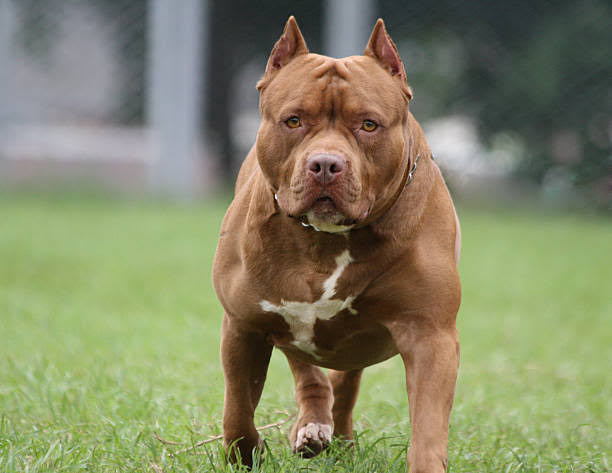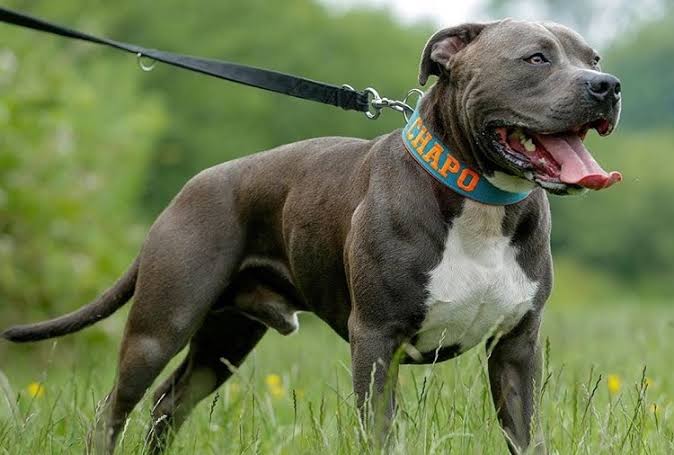
The debate of whether Pitbulls or Rottweilers are more dangerous is a difficult one, fraught with misconceptions and stereotypes. Both breeds have been designated as possibly dangerous in some areas, but this is a contentious issue. Individual dogs’ behavior can be influenced by a variety of factors, including breeding, training, socialization, and their owners’ activities.
Rottwehttps://rottweilerscare.com/category/blog/ilers and Pitbulls are both powerful dogs that can cause significant injuries. Rottweilers, on the other hand, are considered to be more aggressive towards people, and Pitbulls are more hostile against other dogs. Despite this, both species may be loyal, affectionate, and well-behaved family dogs if properly nurtured and trained.
It’s critical to understand that no dog is inherently harmful, and good ownership is essential for making any dog a safe and joyful companion. Every dog breed need proper care, socialization, and training.
Which is the world’s strongest dog?
The title of “strongest dog in the world” is subjective and based on the criteria used to assess strength. In terms of bite force, the Kangal dog from Turkey has one of the highest reported bite forces (743 psi). Strength can also be measured by a dog’s capacity to draw weight, and breeds such as the Alaskan Malamute are well-known for their amazing pulling power.
Other breeds that are commonly known for their power include:
German Shepherds are known for their involvement with police enforcement and general power.
Siberian Huskies are known for their weight-pulling ability, particularly in sled dog contests.
Rottweilers were traditionally utilized as herding and security dogs due to their strength.
Mastiffs are known for their strong bodies and a powerful biting force of 556 psi.
Each of these breeds has distinguishing qualities that contribute to their strength, whether for pulling, guarding, or other working purposes. It’s vital to remember that no matter how strong a dog is, adequate training, socialization, and care are essential for a well-behaved and safe pet.
Why are pitbulls effective fighting dogs?

Pitbulls were bred for dog fighting, which is illegal and terrible. They were chosen due of their strength, loyalty, and determination. Historically, these dogs were developed to be muscular and durable, with a high bite force that allowed them to fight other dogs effectively. However, it is crucial to stress that the aggressive behavior associated with dog fighting is not inherent in the breed, but rather the product of human training and mistreatment.
Today, responsible breeding, good training, and socialization may produce Pitbulls that are amiable, loyal, and well-mannered. Pitbulls, like any other dog, can exhibit aggressive behavior if abused or trained to do so. The emphasis should be on responsible ownership and treating all dogs with kindness and respect .
Which dog is better than the Rottweiler?
The meaning of “better” varies widely based on the attributes or features you seek in a dog. If you’re looking for breeds that are similar to Rottweilers in terms of temperament, size, and potential as guard dogs, consider the following:
Bullmastiffs, known for their size and strength, make great guard dogs and are similar in nature to Rottweilers.
Doberman Pinschers are also noted for their protective instincts and strong trainability, making them excellent guard dogs.
German Shepherds are a versatile breed that is employed in a variety of service tasks. They are intelligent and protective.
Rhodesian Ridgebacks, which were originally designed to hunt lions, are independent and, with proper training, may make excellent guard dogs.
Each of these breeds has distinct traits and may succeed in areas where a Rottweiler may not, depending on your personal needs and preferences. To identify which breed is “best” for you, you must conduct research and examine its specific characteristics.
Are Rottweilers unsuitable for first-time owners?

Rottweilers can be a difficult breed for first-time dog owners because of their size, strength, and the need for continuous training and socializing. They demand an owner that can provide firm, consistent leadership and has a good understanding of canine behavior. A first-time owner, with the proper commitment to training, exercise, and social connection, can effectively raise a well-behaved Rottweiler. It is critical to be prepared for the responsibilities that come with having a robust breed like the Rottweiler, as well as to have the time and finances to commit to their upbringing.
Are pitbulls suitable for first-time owners?

Pitbulls are suitable for first-time dog owners, but they require careful consideration and devotion. They are noted for their intellect, loyalty, and devotion to their families. However, they require continuous training, socializing, and exercise to develop into well-behaved pets.
Here are some important factors to consider if you’re a first-time owner considering about getting a Pitbull:
Training and Socialization: Early and continual training is essential for helping your Pitbull comprehend acceptable behaviors. Socialization helps them feel at ease among other people and pets.
Exercise Requirements: Pitbulls are lively and require daily exercise to remain healthy and happy.
Understanding Dog Behavior: Knowing about dog behavior and body language will help you communicate with and understand your Pitbull.
Time and Energy: You should be willing to devote time and energy to your dog’s care and training.
Pitbulls may be affectionate and dedicated companions for new owners if approached correctly. To establish a joyful and harmonious connection with your pet, you must first research and prepare for the obligations of dog ownership.
Which dog is best to buy?
Choosing the finest dog to buy is determined by a variety of criteria, including your lifestyle, living space, family size, and personal preferences. Below are some common dog breeds that are frequently recommended for various sorts of owners:
Golden Retrievers are known for their amiable and tolerant personalities. Ideal for families.
Labrador Retriever: Ideal for active families, noted for their intellect and excellent disposition.
Beagle: A small to medium-sized breed that is ideal for families and recognized for its inquisitive attitude.
German Shepherd: Suitable for daring owners who can provide a job for their dog.
Poodles are intelligent and suitable for owners who love cerebral stimulation and training challenges.
It is critical to investigate and analyze the breed’s temperament, exercise requirements, and health history. Visiting local shelters and meeting dogs in person can also help you choose the ideal companion to fit your lifestyle. Remember that the best dog to acquire is one that meets your demands while also fitting into your family dynamic.
Which is safer for the family: Pitbull or Rottweiler?

When properly taught and socialized, Pitbulls and Rottweilers may both be family-friendly dogs. It’s critical to recognize that a dog’s behavior is influenced more by upbringing, training, and surroundings than by breed alone.
Pitbulls are recognized for their loyalty and affection for their families. They are lively and require continuous training and socialization to ensure they behave well around people and other animals.
Rottweilers are also faithful and protective of their families. They are robust and self-sufficient, therefore they benefit from a confident owner who can provide tough, continuous training and set clear regulations.
Early socialization, positive reinforcement training, and participation in family activities can result in a well-adjusted and safe family pet of either breed. It is also advised that all dogs, regardless of breed, be supervised around young children. When deciding between a Pitbull and a Rottweiler, consider compatibility with your family’s lifestyle, time commitment to training, and the specific dog’s disposition.